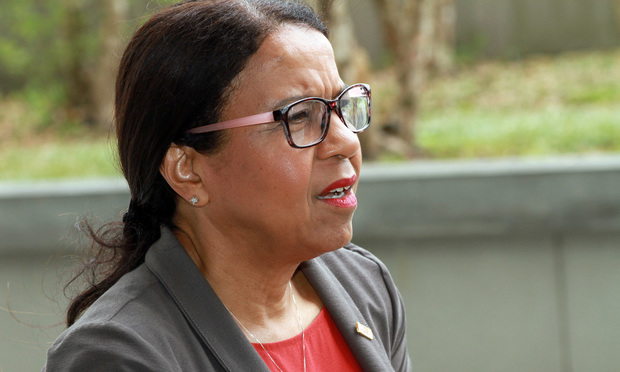The American Civil Liberties Union of Georgia renewed the call Friday for consideration of releasing prisoners who are medically fragile, elderly or near parole as the Department of Corrections reported a worsening of the outbreak of COVID-19, the disease caused by the novel coronavirus.
The Department of Corrections announced Friday the first death of a prisoner from COVID-19: a 49-year-old man who died Thursday evening at a hospital in Albany. He had been an inmate at Lee State Prison in Leesburg, where a total of 20 others have tested positive for the virus or are being quarantined because they’re suffering from the symptoms.
Only a week ago, the department reported the first staff member to test positive for COVID-19. Now, four staff members at Lee State have the virus, the department said.
Plus one inmate at Phillips State Prison in Buford has tested positive, the department said.
Both prisons have put inmates on “restricted movement,” the department said. “However, offenders continue to have access to medical care, showers, meals and hygiene related products. Additionally, the GDC continues to screen staff entering each of our facilities, with questionnaire-based attestation documents and temporal temperature screening.”
The GDC said its Office of Health Services is working closely with the Georgia Department of Public Health to protect staff and inmates.
Thus far, the department and the Georgia Board of Pardons and Parole have said they have not made any policy changes regarding consideration of release of prisoners due to the pandemic.
“This death is tragic, and our hearts go out to the family,” Andrea Young, executive director of the ACLU of Georgia, said in a news release late Friday. “This is the very reason that we are asking state and local officials to implement procedures to protect all people who are in our prisons and jails from being exposed to and contracting the COVID-19 virus.”
She and other public interest lawyers have called for the release of inmates who do not pose a threat to public safety.
“Putting people at risk by keeping them in jail beyond what is necessary for public safety poses a far-reaching health threat to the people incarcerated, the staff, and the greater community,” Young said.
The Southern Center for Human Rights expressed “deep concern about the role that courts and jails will play in furthering the spread of COVID-19, both to incarcerated people and the general public.” Executive director Sara Totonchi called jails and prisons “powder kegs on a good day,” and said the virus “could wreak havoc on the people trapped inside if we do not begin to decarcerate immediately.”
NOT FOR REPRINT
© 2024 ALM Global, LLC, All Rights Reserved. Request academic re-use from www.copyright.com. All other uses, submit a request to [email protected]. For more information visit Asset & Logo Licensing.


 Andrea Young, Executive Director, ACLU of Georgia. (Courtesy photo)
Andrea Young, Executive Director, ACLU of Georgia. (Courtesy photo)







